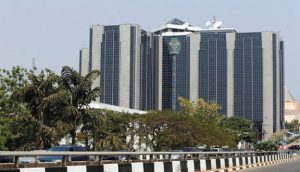Bloomberg
Central banks in five of eight major African nations will likely hold interest rates in the next two weeks to shore up their sickly economies, even as the inflation pressures build.
Surging food and fuel prices from the war in Ukraine, renewed virus lockdowns in China and the US unwinding coronavirus stimulus have clouded the outlook for the continent’s post-Covid recovery. African policy makers will also need to consider portfolio outflows and exchange-rate weakness in emerging markets when they deliberate on interest-rate decisions this month.
Countries like Kenya, Zambia and Angola where inflation is slowing or within target may leave rates unchanged to help support economic growth. Others — such as South Africa — that are more connected with global markets through asset flows and commodity prices are likely to hike, according to Tatonga Rusike, sub-Saharan Africa economist at Bank of America.
Policy makers at the Bank of Zambia have been focused on driving inflation back to within target by next year. With gauge slowing for a ninth straight month in April to a two-and-a-half year-low, the monetary policy committee will probably stand pat, said Trevor Hambayi, a Lusaka-based independent economist. That will support the economy’s recovery and may boost the kwacha, which has strengthened 4.5% against the dollar since April, helping to offset price pressures from
rising gasoline and wheat costs.
The MPC will probably keep borrowing costs on hold until Africa’s second-largest copper producer secures a bailout from the International Monetary Fund allowing it to drive its economic agenda, which would require increased liquidity and open the door for a rate cut, Hambayi said.
While the South African Reserve Bank lifted the key rate by 25 basis points in each of its last three meetings, two out of five MPC members voted for a bigger, half-point hike in March. Now, more of the panelists may agree to up the pace of tightening due to inflation that’s set to temporarily breach the ceiling of Reserve Bank’s target, a weaker currency, and a more hawkish US Federal Reserve and European Central Bank.
Ghana’s monetary authority will face a tough choice: support economic growth or tame runaway inflation. The decision even has economists split.
Absa Group Ltd. analysts Ridle Markus and Samantha Singh expect the central bank to raise the benchmark interest rate by 200 basis points as they forecast inflation to exceed the MPC’s estimates after accelerating at a faster than anticipated pace in March and April.
Patrick Asuming, a senior lecturer at the University of Ghana Business School, projects the MPC will leave the rate untouched to support growth after a 2.5 percentage point increase in March, the biggest hike since at least 2002. “Policy rate hikes are not the real solution because inflation is driven largely by supply-side factors, hence, the central bank’s hiking of rates is just a battle in futility,†he said.
Still, Razia Khan, head of research for Africa and the Middle East at Standard Chartered Bank, warns that “failure to act soon could have far reaching implications, putting at risk any hopes for quick macroeconomic stabilisation.â€
The Central Bank of Nigeria’s reconstituted MPC will probably stick to its policy of only making adjustments to borrowing costs once the economy’s recovery is on a sustainable path. That should see it leave the benchmark interest rate steady for a 10th consecutive meeting, even as inflation has been ticking up this year.
Kenya’s MPC is expected to look past inflation that has edged closer to the top of its target range and the shilling’s weakness and keep its rate unchanged for a record 14th straight meeting to support lending ahead of elections on Aug. 9.
Angola’s monetary authority is likely to keep borrowing costs steady as a rally in the kwanza against the dollar is helping to rein in inflation. Governor Jose de Lima Massano said this month he expects inflation, which reached a peak in January, to slow further.
The central bank is also seen easing custody fees and the liquidity absorption facility to increase the supply of its currency, Wilson Chimoco, economist at Universidade Catolica de Angola said. A scarcity due to excess supply of foreign exchange has meant less money “to support the financing needs of public expenditure in kwanzas and for economic growth†in 2022, he said.
 The Gulf Time Newspaper One of the finest business newspapers in the UAE brought to you by our professional writers and editors.
The Gulf Time Newspaper One of the finest business newspapers in the UAE brought to you by our professional writers and editors.
